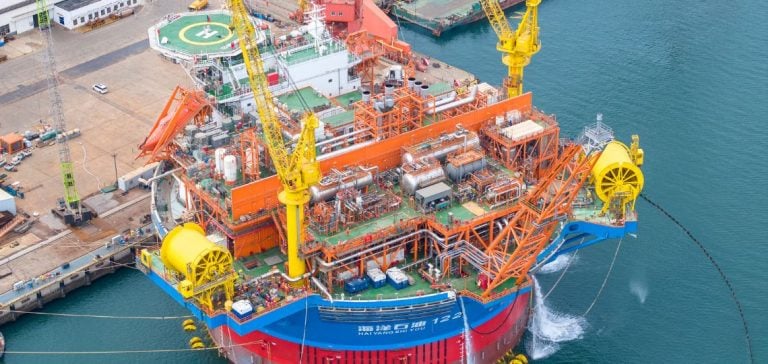CNOOC Limited announces the start of production at the Liuhua 11-1/4-1 secondary oil field development project, marking a significant step forward in the exploitation of resources in the China Sea. The project, located in the East South China Sea, comprises two oil fields, Liuhua 11-1 and Liuhua 4-1, at an average water depth of around 305 meters.
Main production facilities include a new deepwater platform, the “Haiji-2”, and a cylindrical FPSO, the “Haikui-1”.
A total of 32 development wells will be brought on stream, with peak production planned at around 17,900 barrels of oil equivalent per day by 2026.
Technology and Innovation
The project stands out for its innovative approach, being the first oil field in Asia to be developed using the “Deepwater Platform + Cylindrical FPSO” model.
This method overcomes various technological challenges, facilitating the development of deepwater oil fields.
The CEO of CNOOC Limited, Zhou Xinhuai, points out that “the company has overcome various technological challenges to bring this project to fruition”.
By revitalizing deepwater oil fields with original reserves in excess of 100 million tonnes, this new approach has significantly reduced construction and production costs.
The importance of this project is not limited to its technical innovations.
It also represents a strategic response to growing energy needs, particularly in the context of the global energy transition.
Heavy oil production, although more complex to extract, offers significant opportunities for companies seeking to diversify their sources of supply while meeting sustainability requirements.
Economic and environmental implications
The economic impact of this project is considerable, not only for CNOOC Limited, but also for the entire Asian energy sector.
The planned production capacity could strengthen China’s position as a key player in the global energy market.
In addition, the application of advanced technologies in the development of deepwater oil fields could serve as a model for other similar projects in the region.
However, the exploitation of offshore oil resources also raises environmental concerns.
Companies must navigate a complex landscape where the pressure to reduce carbon emissions and adopt sustainable practices is growing.
The transition to more environmentally-friendly production methods is essential to meet the expectations of investors and stakeholders.
Future prospects
As the Liuhua 11-1/4-1 project enters production, it is crucial to assess its performance against sustainability and efficiency targets.
Companies in the sector must continue to innovate and invest in technologies that minimize environmental impact while maximizing profitability.
CNOOC’s ability to integrate these elements into its operations will be critical to its long-term success.
In short, the launch of production at the Liuhua 11-1/4-1 oilfield illustrates not only technological advances in the sector, but also the challenges and opportunities facing the energy industry.
The ability to balance economic requirements with environmental imperatives will be a key factor for companies seeking to thrive in an ever-changing market.






















